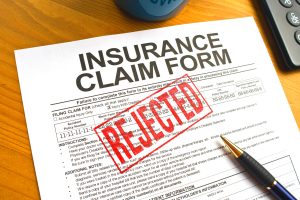Recently, an investigation by CNN spotlighted systematic issues with sexual assaults involving merchant shipping crews and the U.S. Coast Guard personnel responsible for policing them. As longtime civil trial lawyers representing survivors of sexual assault in South Florida, we’ve seen some confusion about how whether U.S. military branches can be sued in civil court for sexual assaults – and by whom. 
Most Florida sexual assault lawsuits name third parties as defendants. These are businesses or organizations or government agencies or employers that had a duty to protect the victim and failed to do so. This negligence is grounds for sexual assault survivors to pursue monetary damages for physical injuries, medical bills, lost wages, pain and suffering, mental anguish, emotional distress, etc.
With the U.S. military, it’s a little trickier – depending on who is trying to pursue damages. Sexual assault has been a pervasive and long-standing problem in all military branches. According to the 2021 U.S. Department of Defense Annual Report on Sexual Assault in the Military, the number of sexual assault reports spiked by 13 percent compared to the previous year. Although officials claim steady increases in sexual assault reporting indicate that survivors are more comfortable coming forward, anonymous surveys of troops don’t bear that out. They show that sexual abuse and unwanted sexual contact is on the rise, but fewer are reporting it, and fewer perpetrators are legally punished. Among female service members, 8 percent reported experiencing unwanted sexual contact in 2021. For men, it’s 1.5 percent.
Suing the Military for Sexual Assault is Complicated
Historically, military members haven’t been able to sue for sexual assault that occurred while they were serving. As our West Palm Beach sexual assault lawyers can explain, the U.S. government has for more than 70 years leaned on the Feres doctrine, which bars troops from seeking monetary damages in civil court for injuries sustained in active duty service. The one exception is medical malpractice.
However, that may be changing. Last year, the U.S. Court of Appeals for the Ninth Circuit ruled in Splestoser v. Hyten et al that the Feres doctrine (named for a U.S. Supreme Court ruling) was intended only to prevent troops from suing the federal government over injuries sustained in training and combat. It was not, the three-judge appellate panel ruled, intended to apply to sexual assault – because sexual assault doesn’t “conceivably serve any military purpose.”
The Splestoser case definitely moves the needle, but that doesn’t mean the legal floodgates are entirely open. The plaintiff in Splestoser is suing her attacker directly (for an intentional tort) as opposed to the U.S. military directly for some sort of negligence. The alleged assailant is arguing this was under the military’s jurisdiction. His argument is that he shouldn’t be held liable, the military should. But either way, this case opens the door potentially to allowing sexual assault survivors to sue the military and the U.S. Department of Defense (DOD). The ruling sets a precedent, but there’s no guarantee other federal appellate courts will decide the same. (This was in the 9th Circuit Court of Appeal, while Florida is part of the 11th Circuit.) It’s possible other circuits could decide differently in the face of a similar challenge. If that happens, the conflict will have to be certified to the U.S. Supreme Court for resolution.
This brings us to the case highlighted by CNN involving a military academy student aboard a marine merchant ship overseen by the U.S. Coast Guard. (Worth noting: The DOD reports sexual assaults and harassment are on the rise in military academies as well. There were 155 formal reports made during the 2021-2022 school year, though officials suspect hundreds more went unreported.) This case involves a U.S. Merchant Marine Academy student (attending a federal service academy), a private marine merchant, and an employee for that private marine merchant. The U.S. Coast Guard is under fire here because it is supposed to be responsible for law and order on this commercial ship and thousands of others in American ports and waterways. Further, the U.S. Coast Guard vets mariners and offers continued monitoring and enforcement of misconduct on land or while on-the-job. A serious offense could result in the marine merchant being stripped of their credentials. If a merchant mariner is accused of a crime on a U.S. flag ship, it’s the U.S. Coast Guard’s law enforcement division responsible for investigating and pursuing criminal charges. The Coast Guard also has a whole separate administrative division with the duty to investigate misconduct and strip a mariner of credentials for egregious offenses. Continue reading
 South Florida Injury Lawyer Blog
South Florida Injury Lawyer Blog












 When it comes to pursuing financial compensation for motor vehicle crashes, those involving motorcycles are unique in several respects. But one thing that is the same whether we’re talking about a Florida motorcycle accident or a car accident is that you can still recover monetary damages even if you were partly to blame.
When it comes to pursuing financial compensation for motor vehicle crashes, those involving motorcycles are unique in several respects. But one thing that is the same whether we’re talking about a Florida motorcycle accident or a car accident is that you can still recover monetary damages even if you were partly to blame.



